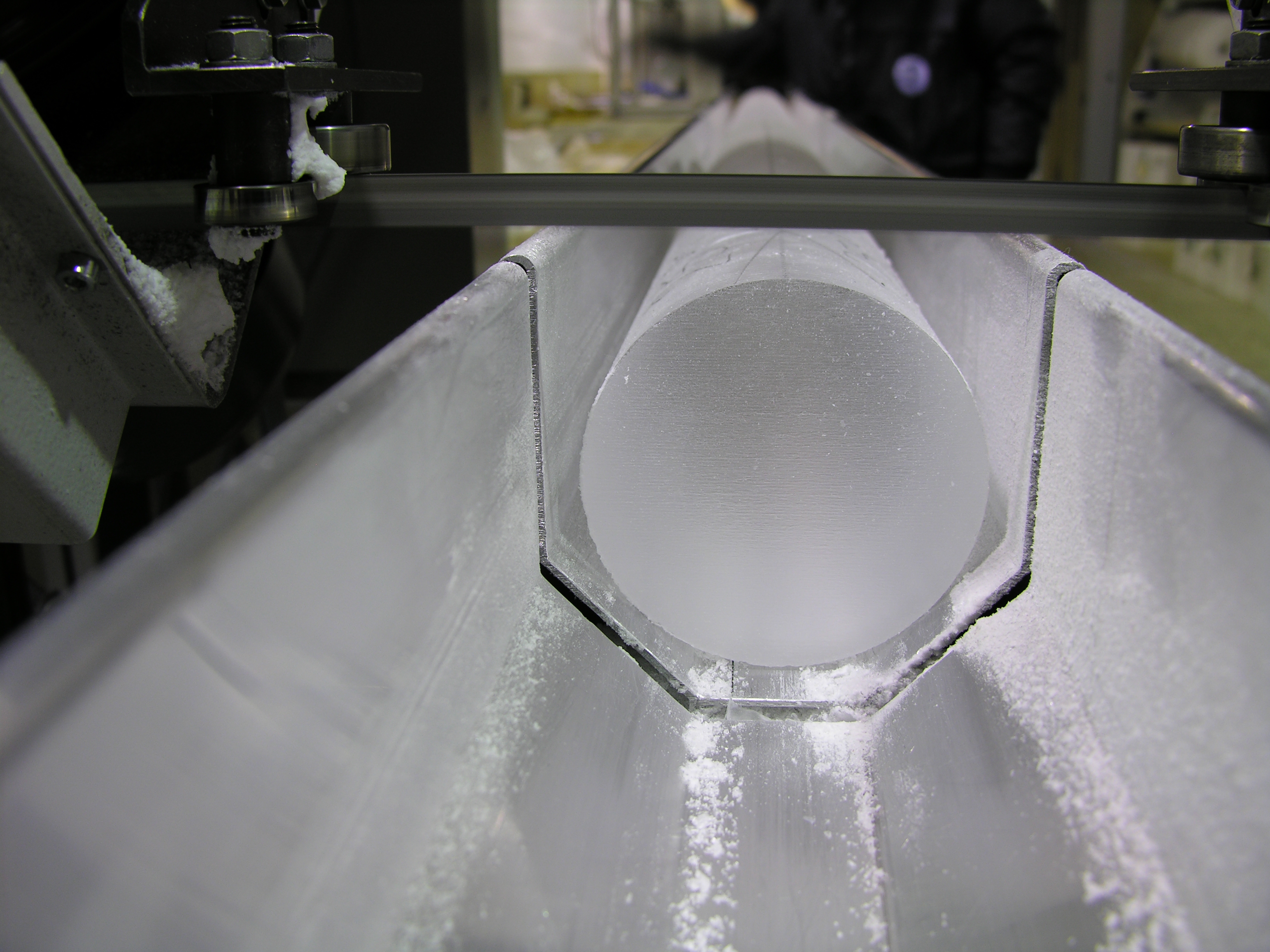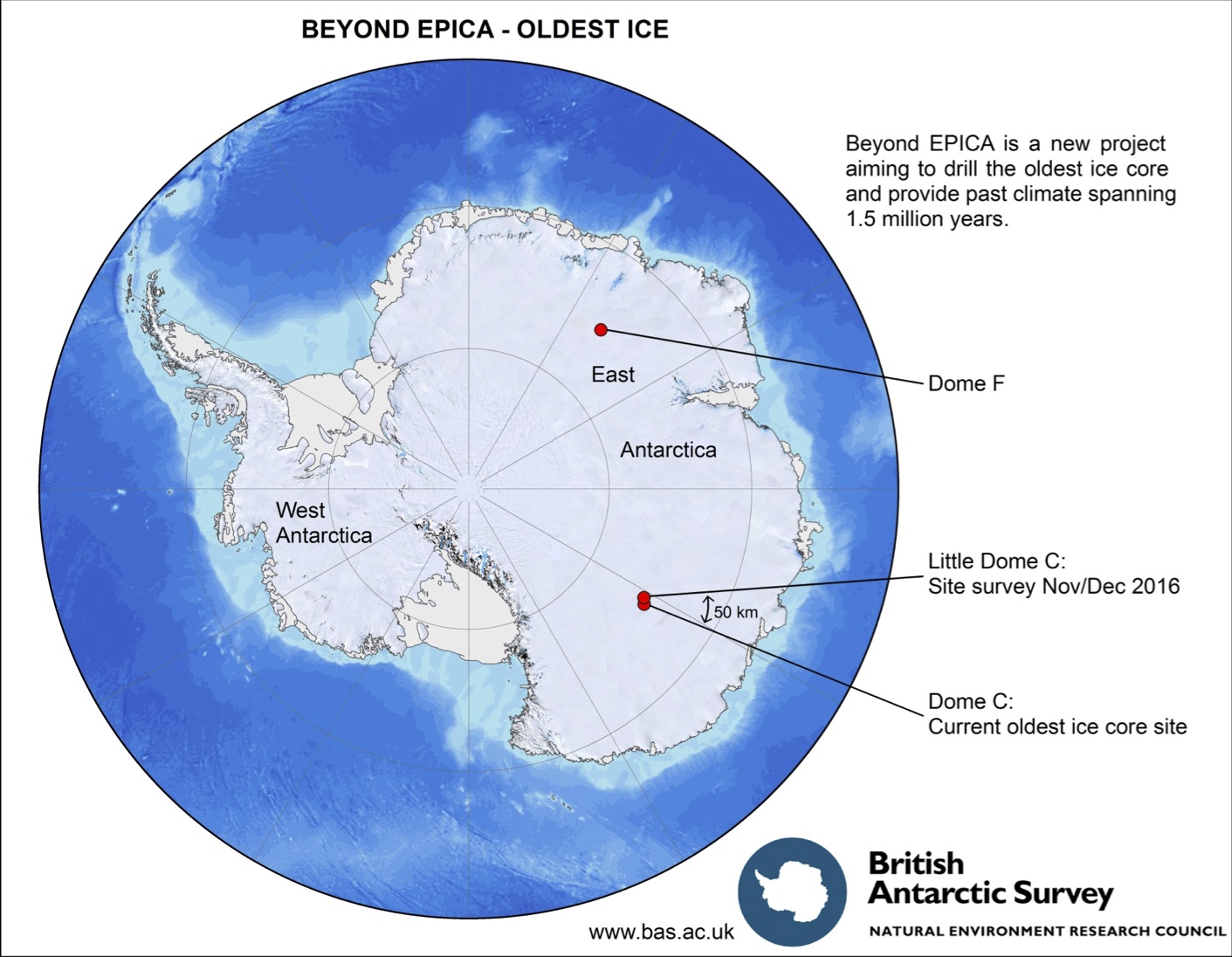The Search for Oldest Ice on Earth Begins

Where in the world is the oldest ice on Earth? A team of scientists is on a mission to find out.
A group of researchers from 10 European countries is traveling to East Antarctica this month to locate the oldest ice on the planet. Their mission is the first phase of Beyond EPICA Oldest Ice (BE-OI), a project to collect more than 1 million years of Earth's climate data. BE-OI research aims to answer questions about how Earth's climate has shifted in the past, and what that means for the future.
Scientists will drill ice cores, penetrating deep into the layers of ice covering Antarctica, according to BE-OI scientists. The layers of ice in the cores can be read like the rings of a tree, and scientists can determine the age of the ice by counting the annual layers. Ice also traps air bubbles as it freezes, preserving the ancient atmosphere's composition, the researchers said. While ice layers can reflect global temperatures over time, the air bubbles shed light on how the atmosphere has changed. Scientists use these results to reconstruct the planet's historical climate record. [Album: Stunning Photos of Antarctic Ice]
"In the early 2000s, we drilled an ice core from Antarctica that gave us a climate record going back 800,000 years," Robert Mulvaney, an ice core scientist from the British Antarctic Survey (BAS) who is working on the BE-OI project, said in a statement. "Now we want to double the length of that record to investigate an important shift in Earth's climate around one million years ago, when the planet's climate cycle between cold glacial conditions and warmer interludes changed from being dominated by a 41,000-year pattern to a 100,000-year cycle."
There have been at least five documented major ice ages during the 4.6 billion years since the Earth was formed, with the most recent occurring during the Pleistocene Epoch — beginning about 1.8 million years ago and lasting until about 11,700 years ago. Though the exact causes of ice ages have not been proven, scientists say the icy climate cycles are likely the result of the Earth's distance from the sun, ocean circulation, atmospheric composition and more.
Mulvaney said that understanding what controlled the shift in Earth's ice age cycles will help scientists understand how ice will behave in the current state of global warming due to climate change. The researchers will specifically investigate whether increasing levels of carbon dioxide had a role in the historical climate change.

Several sites in East Antarctica will be surveyed. Olaf Eisen, project coordinator and a glaciologist at the Alfred Wegener Institute (AWI), said previous studies have determined key regions where scientists expect to find the oldest continuous ice record on Earth.
Sign up for the Live Science daily newsletter now
Get the world’s most fascinating discoveries delivered straight to your inbox.
"Now we have to prove this and it is important that we learn as much as possible about deposition processes and the composition of the ice," Eisen said.
After determining suitable drilling sites, phase two of the BE-OI project will include ice- core extraction. These cores will capture ice from the surface to the bedrock, nearly 2 miles (3 kilometers) deep. Laboratories across Europe will then analyze the cores, adding to researchers' understanding of how Earth's climate and atmosphere have interacted over the past 1.5 million years.
"We need to understand the interaction between the Earth's atmosphere and climate in very different conditions in the past if we are to be sure we can predict the future climate response to increasing greenhouse gases," Mulvaney said. "There is no other place on Earth that retains such a long a record of the past atmosphere other than the Antarctic ice sheet, and it is tremendously exciting to be embarking now on the journey to recover this record."
Original article on Live Science.










